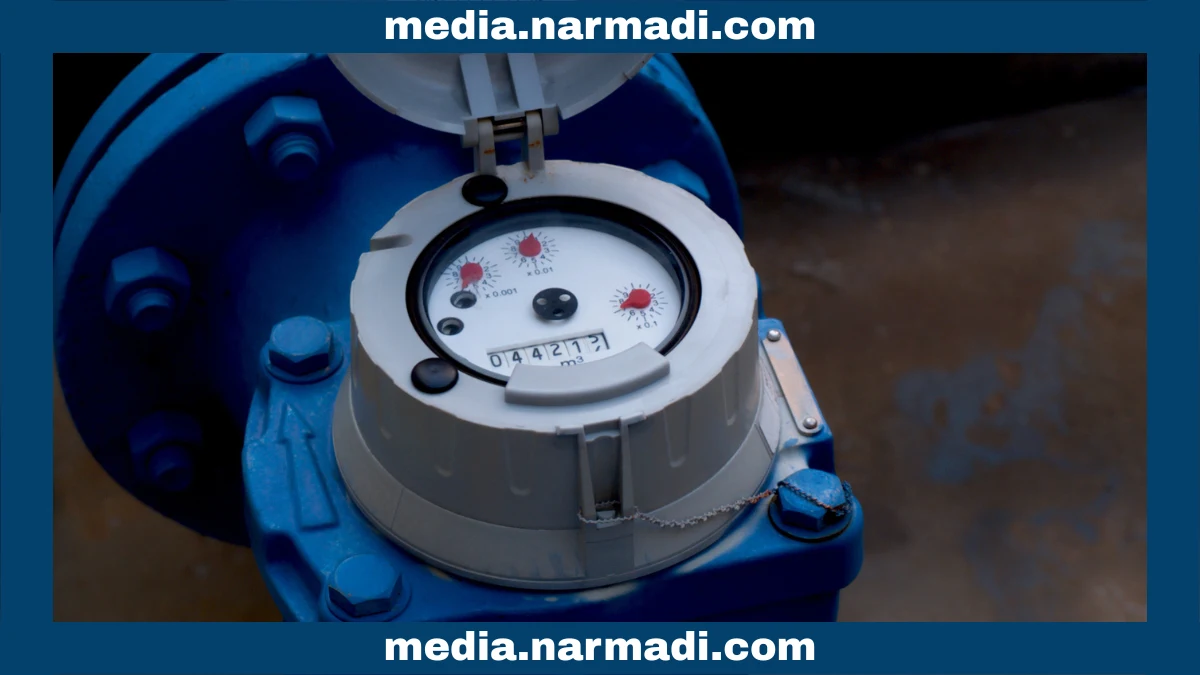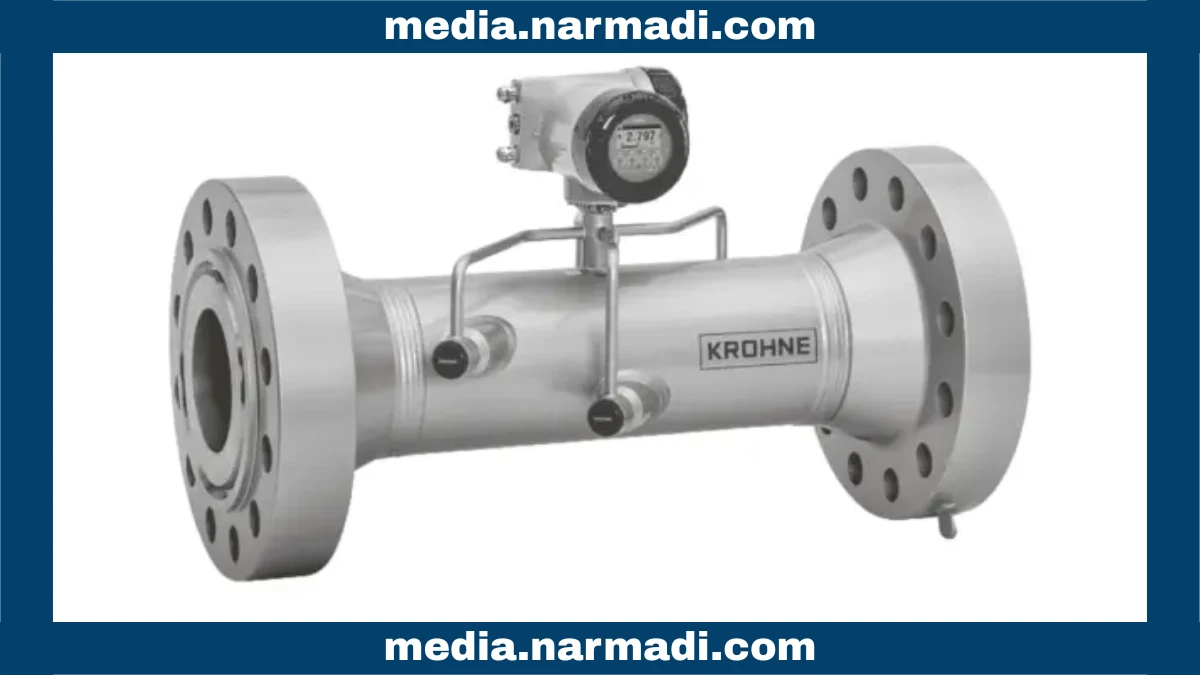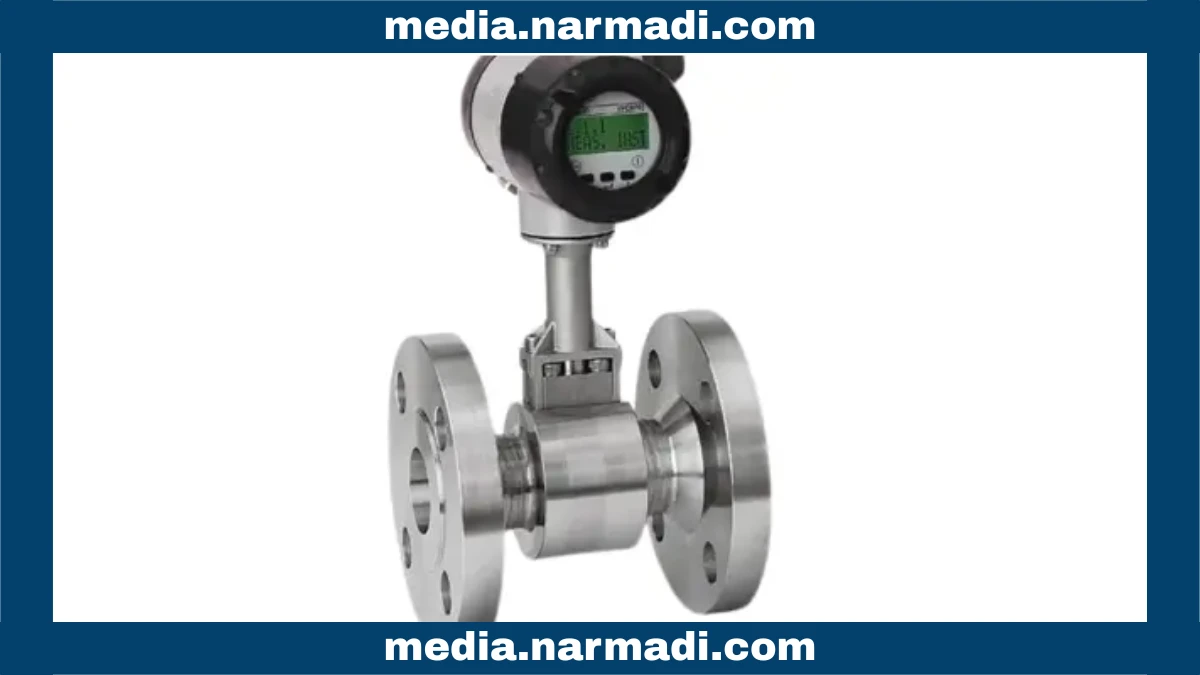A flowmeter is an electronic device used to measure fluid flow in piping systems or open channels. This device plays an important role in controlling flow in various industries, such as water treatment, chemical, and mining. There are many types of flowmeters with different working principles and technologies.
By understanding the types of flowmeters, you can consider the technology and its advantages according to your needs. Each requirement, such as clean water, wastewater, chemicals, and gas, will require a different type of flowmeter.
This article will discuss the types of flowmeters that are commonly used. Let's take a look so you don't make the wrong choice for your needs.
Types of Flowmeter

In general, flowmeters are divided into several types based on their working principle and technology. Each type has different advantages. Here is a more detailed explanation.
Electromagnetic flowmeter
An electromagnetic flowmeter is a type of device used to measure the flow rate of conductive liquids such as water, liquid waste, and chemical solutions. These devices use the principle of electromagnetic induction to determine the speed of flowing liquids. The readings of these devices are not affected by pressure, temperature, or viscosity, resulting in accurate data.
Various industries, such as water treatment, manufacturing, energy, and food processing, use these devices because of their high-precision measurement capabilities and minimal maintenance requirements. Some modern models are equipped with Bluetooth connectivity so they can be operated remotely via a smartphone or computer.
Ultrasonic flowmeter

An ultrasonic flowmeter is a type of flowmeter that determines flow velocity using ultrasonic waves. Flow velocity is measured by the time difference between the sound waves emitted from one sensor to another sensor installed on the pipe.
This type of flowmeter has the advantage of installation flexibility, as it is placed outside the pipe without having to cut the flow path, thus not causing fluid flow resistance. Sectors that use ultrasonic flowmeters are usually the oil, chemical, and energy industries.
Turbine flowmeter
A turbine flowmeter is a type of flowmeter that measures the flow rate of liquids or gases using the principle of turbine rotation inside a pipe. It works by measuring the flow rate or volume through the speed of the turbine rotation when the fluid flows.
The advantages of this type of flowmeter are high accuracy, easy installation and maintenance, simple design, durability, and fast response. In addition, it has a wide flow range and is capable of operating at various temperatures and pressures.
Sectors that use this flowmeter include the oil and gas, water and wastewater, and food and beverage industries. This device is even commonly used in the chemical industry and the agricultural sector.
Vortex flowmeter

Vortex flowmeters are suitable for various types of fluids, including liquids, gases, and vapors. This type works using the principle of turbulence. Water discharge is calculated from sensors that read the vortices generated by the flow velocity when the fluid passes through an obstacle in the pipe.
This type of flowmeter has advantages in terms of high accuracy, wide measurement range, and stable performance. Changes in temperature, pressure, density, or viscosity of the fluid will not affect this device. Its applications are widely found in the power generation industry and chemical plants.
Coriolis flowmeter
Coriolis flowmeters are a type that produces data on water volume, mass, and fluid density. This type works on the principle of the Coriolis effect. Flowing fluids are measured by changes in the frequency or phase of oscillation through a vibrating tube.
The advantage of this type of flowmeter is that it is one of the most accurate. However, it is relatively expensive. Coriolis flowmeters are widely used in industries that require high accuracy, such as oil and gas, pharmaceuticals, or high-tech chemicals.
These are the types of flowmeters that you need to know to have the best measure of a fluid flow system. By understanding the different types, you can make an informed decision before choosing one.
To choose the right type of flowmeter, you need to consider the type of fluid, accuracy level, working environment, maintenance budget, and additional features. The type of fluid—conductive, clean, dirty, or gaseous—will determine the type you choose.
For high accuracy, you can choose a Coriolis flowmeter, but it is relatively expensive. Electromagnetic, turbine, or vortex flowmeters can be an option if you are looking for one that is durable in any working environment. Meanwhile, turbine flowmeters are more affordable.
In addition, you can also consider the available Bluetooth connectivity to operate it remotely. The choice is ultimately yours. Consider your needs and the type of fluid to be measured to select the right device that is beneficial for you.